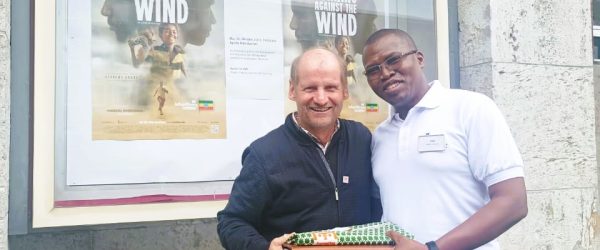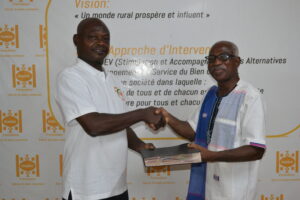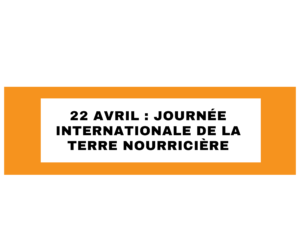Du 17 au 20 octobre 2023, Misereor, partenaire historique d’Inades-Formation, a réuni, à son siège en Allemagne, des acteurs de développement en un dialogue Sud-Nord sur les pratiques économiques durables sur le thème “Explorer les thèmes et les formes de collaboration “. Dans cette interview, le Secrétaire Général d’Inades-Formation, M. Sena Adessou qui y a pris part, nous parle de son séjour et des résultats de cette rencontre.
Vous étiez dernièrement à la rencontre organisée par MISEREOR, le dialogue Sud-Nord. Quel était l’objectif de cette rencontre ?
M. Adessou : C’était à Aachen au siège de MISEREOR du 16 au 20 octobre dans le cadre d’une rencontre internationale que MISEREOR à organisé pour ses partenaires en Afrique, en Amérique latine et en Asie.
Il était question de travailler à la mise en place d’une plateforme de dialogue nord-sud autour des alternatives économiques durables. Aujourd’hui, quand on regarde un peu le fonctionnement des sociétés on se rend compte que les sociétés vont mal avec beaucoup de dysfonctionnements. Il devient donc urgent de réfléchir aux mécanismes qui entretiennent ces malaises et travailler à construire de véritables alternatives pour transformer ces sociétés. C’est donc la raison qui sous-tend cette rencontre. Nous étions une vingtaine de participants avec une équipe de MISEREOR qui a animé la session. Pour l’Afrique nous étions 3 participants dont deux de la Côte d’Ivoire et un du Zimbabwe.
L’Europe aussi était présente à ce dialogue à travers la France et l’Allemagne qui nous ont partagé la dimension européenne d’analyse des problèmes. Ce qui nous a aidé dans les travaux.
Après ces travaux comment cette plateforme de dialogue va-t-elle se présenter ?
M. Adessou : En fait, il faut comprendre que durant les 4 jours d’intenses travaux, nous avons eu à nous prêter à des exercices assez intéressants qui nous ont amené à construire des groupes de travail.
A la fin, il y a eu cinq groupes de travail. Le premier groupe a travaillé sur la question de « souveraineté alimentaire et agroécologie », tout ce qui est système alimentaire durable. Le second groupe a travaillé sur la « transition juste », le troisième sur « l’écoféminisme », le 4è sur « l’économie transformationnelle », et le 5è groupe sur la « gouvernance des communs ». L’architecture de cette plateforme qui a été finalement retenue, c’est la mise en place d’une plateforme avec un secrétariat qui sera animé pour l’instant par MISEREOR ; ce secrétariat sera doté d’un comité de pilotage/d’orientation constitué des points focaux des différents groupes de travail que j’ai précédemment cités. Ces points focaux auront pour tâche d’animer périodiquement les groupes de travail.
Nous disons merci à MISEREOR qui a pu mobiliser des ressources auprès de la BMZ (NDLR : la BMZ est l’appellation du ministère fédéral allemand de la coopération économique et du développement) pour la création et le fonctionnement de la plateforme pour les prochaines années (un an et demi) . C’est quelque chose que nous avons vraiment salué. Le défi reste la mobilisation des ressources pour faire fonctionner ladite plateforme après le financement de BMZ et comment garder la dynamique des groupes dans un monde en perpétuelles mutations des pensées.
Pour moi, la plateforme qui va être créée, ne sera qu’un instrument de renforcement du dialogue des peuples. On sent que les peuples ne dialoguent pas suffisamment. Il y a de très bonnes choses qui se déroulent ailleurs qu’on peut exploiter pour créer des processus en Afrique et vice versa. Il est question aujourd’hui à travers cette plateforme d’identifier les meilleures expériences qui se développent dans les 4 coins du monde, de les communiquer et de les utiliser pour construire de véritables mécanismes de transformation ou de véritables alternatives de transformation.
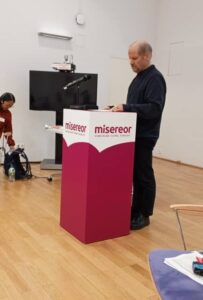
Est-il prévu à terme d’étendre la plateforme ?
M. Adessou : Oui, tout à fait. C’est un élément sur lequel je suis revenu à la fin de l’atelier en montrant qu’il y a nécessité de réfléchir encore aux thématiques identifiées comme thématiques de travail. Les thématiques identifiées sont déjà intéressantes, mais il y a certainement de nouvelles thématiques qui peuvent aussi être pensées autour desquelles d’autres groupes de travail pourront être développés pour permettre une construction plus holistique de la plateforme et bien évidemment d’autres régions du monde aussi seront mises à contribution pour des échanges d’expériences et de réflexion mutuelle et globale.
Quelle a été la contribution d’Inades-Formation et est-ce qu’elle a un rôle déjà défini au sein de la future plateforme ?
M. Adessou : Inades-Formation a participé au processus dès le début auprès de MISEREOR. Quand MISEREOR a lancé l’idée, nous avons participé à des sessions virtuelles de réflexion pour la mise en place et le développement de cette plateforme Il y a eu déjà un groupe restreint dans lequel Inades-Formation a travaillé, puis un groupe de travail élargi auquel nous avons également participé. Et donc ce sont les résultats de ces réflexions menées en amont qui ont servi à nourrir la session qui s’est tenue au siège de MISEREOR, en Allemagne. Lors de l’atelier, Inades-Formation a choisi de participer aux travaux du groupe « souveraineté alimentaire et agroécologique » qui est la colonne vertébrale de notre travail depuis presque 50 ans.
Vous avez certainement fait de belles rencontres à cet atelier. Quelles sont celles qui vous ont le plus marqué ?
M. Adessou : En tant que Secrétaire Général, depuis ma prise de fonction j’ai collaboré avec MISEREOR sans toutefois connaître son Directeur Général, Mgr Pirmin Spiegel.
Durant cette mission, nous avons eu la chance de le rencontrer. Il a ouvert l’atelier, et malgré son agenda très chargé, nous avons pu nous entretenir avec lui, discuté un peu de nos visions personnelles et institutionnelles et parlé du partenariat.
Nous avons profité de l’occasion pour remercier Misereor pour tout l’appui qu’il nous apporte ; appui financier et technique. Comme vous le savez, Misereor a commencé la marche avec Inades-Formation depuis les années 75. C’est vraiment à la création d’Inades-Formation, en tant qu’association internationale. C’est un chemin qui a été long, un chemin qui a été très enrichissant pour les 2 partenaires et nous avons tenu à dire un grand merci au directeur général de Misereor, surtout en ce qui concerne le financement de la construction du siège ; qui d’ailleurs n’a pas manqué de nous féliciter pour l’excellent travail que nous faisons avec l’appui de notre conseil d’administration international.
Il n’a pas manqué de nous informer qu’il sera encore heureux de nous accueillir l’année prochaine puisque nous lui avons fait savoir que dans le cadre du fonctionnement de Inades-Formation nous avons prévu de rendre visite officiellement à Misereor l’année prochaine dans un cadre plus formel que celui de cette session d’atelier.
Enfin, nous en avons pu lui offrir quelques gadgets pour lui témoigner toute notre reconnaissance et ce qui l’a le plus marqué c’est le pin’s d’Inades-Formation.
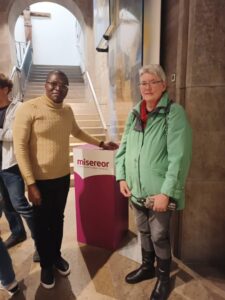
Alors un dernier mot sur cette rencontre ?
M. Adessou : Misereor reste pour nous un partenaire privilégié. La chance que nous avons eue à découvrir Misereor dans le cadre de cette mission nous a permis de voir un peu la grandeur de ce partenaire. Nous avons la chance de collaborer avec Misereor et je tiens à souligner que nous devons véritablement œuvrer, quand je dis « nous », je parle de tout le réseau, pour que ce partenariat perdure.
J’ai également pu rencontrer physiquement dans le cadre de cette mission, d’autres employés de Misereor avec qui nous collaborons. Malheureusement certains étaient en mission particulièrement Sabine et Maria.

